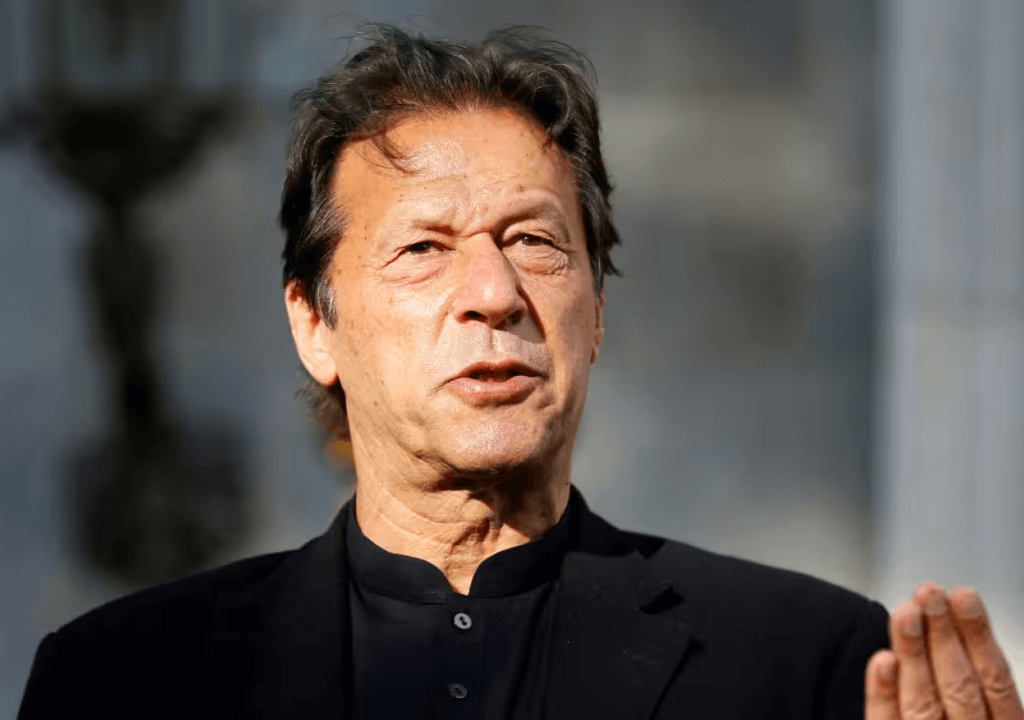Pakistan’s government, military, and other authorities are actively sidelining the populist former Prime Minister Imran Khan, aiming to remove him from mainstream politics, even as he continues to command significant public support. His popularity exposes the stark contrast between him and the entrenched nepotistic political elite that has long dominated Pakistan’s power structures. Supporters rallying behind Khan and his banned party are disrupting the alliance of the military, political leaders, and elites. In response, the authorities have inundated him with charges and systematically closed all avenues for his return to mainstream politics.
Imran Khan’s story is fascinating, tracing his journey from a celebrated cricket star to one of the most hunted figures in Pakistan. Once the poster boy of the nation, Khan excelled first as a cricket legend, leading Pakistan to its first World Cup victory as captain, and later as a politician who defied traditional party lines to become Pakistan’s Prime Minister. He led his party, Pakistan Tehreek-e-Insaf (PTI), to victory, governing from 2018 to 2022. However, Khan’s tenure ended abruptly after he lost the support of the powerful military and was ousted through a no-confidence vote backed by dynastic and corrupt political rivals.
Since his removal, authorities have relentlessly pursued him, though his supporters argue that while he is not entirely free from allegations of corruption, the current rulers—embroiled in far greater scandals—are spared such scrutiny. Speculation persists that Khan’s ouster stemmed not only from political reasons but also from tensions with the military, which some allege has ties to Britain and the West. Reports suggest military leaders were displeased with Khan’s deepening relationship with China, fueling friction. Khan publicly accused the army leadership of plotting his assassination, a claim that escalated tensions further.
As Pakistan, often described as a military-dominated state, grappled with these power struggles, the establishment appeared determined to remove Khan from the political arena altogether, cementing his fall from grace.
In a significant escalation against Imran Khan, the court sentenced the former prime minister to 14 years in prison on corruption charges on January 17, further compounding his legal troubles. Authorities have already detained Khan for more than 18 months while pursuing over 100 cases against him. The court found Khan and his wife, Bushra Bibi, guilty of illegally acquiring valuable plots of land worth billions of rupees through a corrupt deal with a property tycoon. In addition to the prison sentence, Khan received a fine of 1 million Pakistani rupees, while Bibi was handed a seven-year sentence.
The accountability court, specially convened inside Rawalpindi’s Adiala Prison where Khan has been held since his arrest in August 2023, delivered the verdict. Bibi was arrested in the courtroom immediately after the ruling. Khan has consistently claimed that the cases against him are part of a broader “political witch hunt” designed to prevent his return to power.
Since his arrest, Imran Khan has faced an increasing number of charges, including murder, terrorism, and breaching national security. He was convicted in three cases, including for selling state secrets and an illegal marriage, but those convictions were later overturned or suspended last year. Despite this, Khan has remained in prison.
On Friday, following the verdict of 14 years in prison, reports emerged that senior PTI members had met with military leadership to discuss a possible compromise. However, speaking outside the court after his conviction, Khan emphasized that he would not engage in any backdoor deals to secure his freedom. He made it clear that he would neither make any deal nor seek any relief, asserting that those who oppose dictatorship are punished.
Khan seems to be embracing the role of a martyr, gaining considerable support from the public who see him as a symbol of resistance against a failing system. As a result, many people have been rallying in large-scale demonstrations to show their solidarity with him.
There is no doubt about the widespread corruption in Pakistan, with Imran Khan also being a part of it. However, as he faces punishment, the outcome isn’t sending a clear message against corruption. Instead, it fuels public sympathy for him, underscoring the growing disillusionment with the system. This deep-seated corruption has played a significant role in Pakistan’s struggles as a failed state, with many living in extreme poverty. It seems that the public increasingly views Imran Khan as a symbol of resistance.
Once heralded as the heir to the prosperous Mughal Empire, Pakistan now finds itself grappling with a severe crisis caused by its broken system. In this context, Imran Khan has become a symbol of the people’s hatred toward the political establishment. The authorities, fearing the growing public support for Khan, are determined to stop him at any cost.








